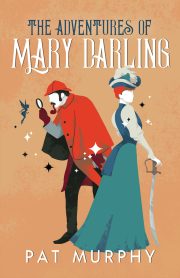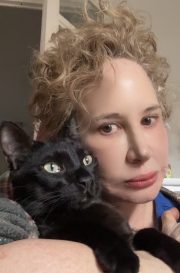THE INDIE FILES: Measuring Your Success as an Author
by Steven Radecki
During the more than a decade that I have been involved in indie publishing, I have worked with more than three hundred authors. One thing I have discovered is that, just as publishing is not a one-size-fits-all process, neither is how individual writers conceive of their success. Managing your own goals and expectations and why you have them can go a long way toward understanding your feelings of success as an indie author.
Just getting your work published is probably your primary goal—whether it be a short story, novella, or epic trilogy. Few writers, particularly newly published ones, give much advance thought to what happens after they achieve that goal: what it will mean to feel successful as an author once their work has been published.
Having clear goals helps you in the effective promotion of your work. Discussing your goals early in your relationship with your agent or publisher can help you determine whether you are the right fit for each other in helping you achieve your goals. Defining goals will also help you in your decision on whether to go the traditional publishing, small publishing, or self-publishing route.
Some of the ways you might measure your success as an author include:
- income earned
- number of books or stories sold
- number of engaged readers
- public displays of your work
You can use any one or more of the metrics; none of them are mutually exclusive (except if you decide to give all your work away for free, in which case income from sales becomes much less likely). There are also other measures of achievement you might use, but these are the ones that I have encountered most often when working with authors to define and achieve their goals.
Selling Isn’t Selling Out
For most indie authors, one of the chief goals is to earn money from the publication of their work. Some writers view this as side income; others hope to earn enough from the sale of their work to support them as a full-time occupation. The amount of income earned might also be linked to other goals, such as qualification for membership in a professional organization such as SFWA.
While existing solely on their writing income is the dream of almost every author, it is a widely established fact that very, very few writers earn a sustainable living from the income they receive from the sales of their work. Most of their writing-related income comes from activities such as teaching writing skills or editing.
It’s a Numbers Game
If you’re a book author, your goal might be to sell a certain number of copies during a specific period: the first two weeks, the first month, or the first year. This number can have a significant impact on whether or how you publish future work. For a short story author, your goal might be the number of stories sold during a specific period or the number of prestigious publications in which your stories appear.
Several industry reports have stated that most books published will sell fewer than 2,000 copies. Many books—regardless of whether they are traditionally, independently, or self-published—will sell far fewer than that—usually far less. Even being published through a traditional publisher is no guarantee of more sales than if you work with a small press or self-publish your work. Keep that in mind when setting your parameters for success.
Readers, Readers Everywhere
Some writers care less about actual sales (although I’ve never heard of an author turning down money from the sale of their books) than the number of copies of their work accessed by readers. For those authors, the number of copies downloaded and the number of readers reached can be more meaningful than a much smaller number of copies sold.
Some writers, particularly new ones, might measure success by the number of followers they gain on social media and other engagement platforms. Putting aside for the moment the current chaotic state of the social media landscape, some authors use the publication of their work to increase their visibility and interactions in online writing and reading communities.
Public Displays of Literary Affection
For many indie authors, a keystone of success is seeing their book available in a physical bookstore or library. There is nothing quite like the feeling of seeing your book, one that you spent months or years writing, sitting on the shelf to be discovered by readers.
I get this one; I really do.
Unfortunately, a recent industry survey reported that fewer than 2% of books published will be stocked in physical bookstores—and those that do rarely remain on the shelves for more than two weeks. It has also become even more challenging to convince the remaining bookstores—including, surprisingly, independent bookstores—to carry your books. You will likely face similar hurdles in convincing libraries to acquire your book. This is not to say that it’s impossible. However, you might want to evaluate how much effort you want to put into achieving this goal when you consider the number of copies you are likely to sell this way.
Achievement Unlocked
Although finishing your work and getting it published is, of course, your initial objective, having a clear vision for what happens after that can have a profound impact on the ongoing success of your work. It is important to set realistic goals at the beginning of your writing career and understand why you have chosen those goals. You might beat the odds and achieve all of your writing-related goals, but you should always be prepared to adjust your expectations.
As your writing career as an indie author progresses, you may discover that how you measure your success will evolve. One of the most important things to remember is this: Celebrate all of your writing victories as they come—whether they be your first sale, your first positive review, or your first time as a published author on a panel at a convention. Achieving each goal, no matter how small, contributes to your feelings of success as an indie author.
 Steven Radecki is the author of Building Baby Brother, a small handful of short fiction, and the nonfiction book, Multimedia with QuickTime. He is also the co-founder and managing editor of Paper Angel Press and its imprints, Water Dragon Publishing (science fiction and fantasy) and Unruly Voices (nonfiction and poetry), and the executive producer of the Small Publishing in a Big Universe podcast. He is a technical writer by trade, with more years in the technology industry than he cares to admit.
Steven Radecki is the author of Building Baby Brother, a small handful of short fiction, and the nonfiction book, Multimedia with QuickTime. He is also the co-founder and managing editor of Paper Angel Press and its imprints, Water Dragon Publishing (science fiction and fantasy) and Unruly Voices (nonfiction and poetry), and the executive producer of the Small Publishing in a Big Universe podcast. He is a technical writer by trade, with more years in the technology industry than he cares to admit.



